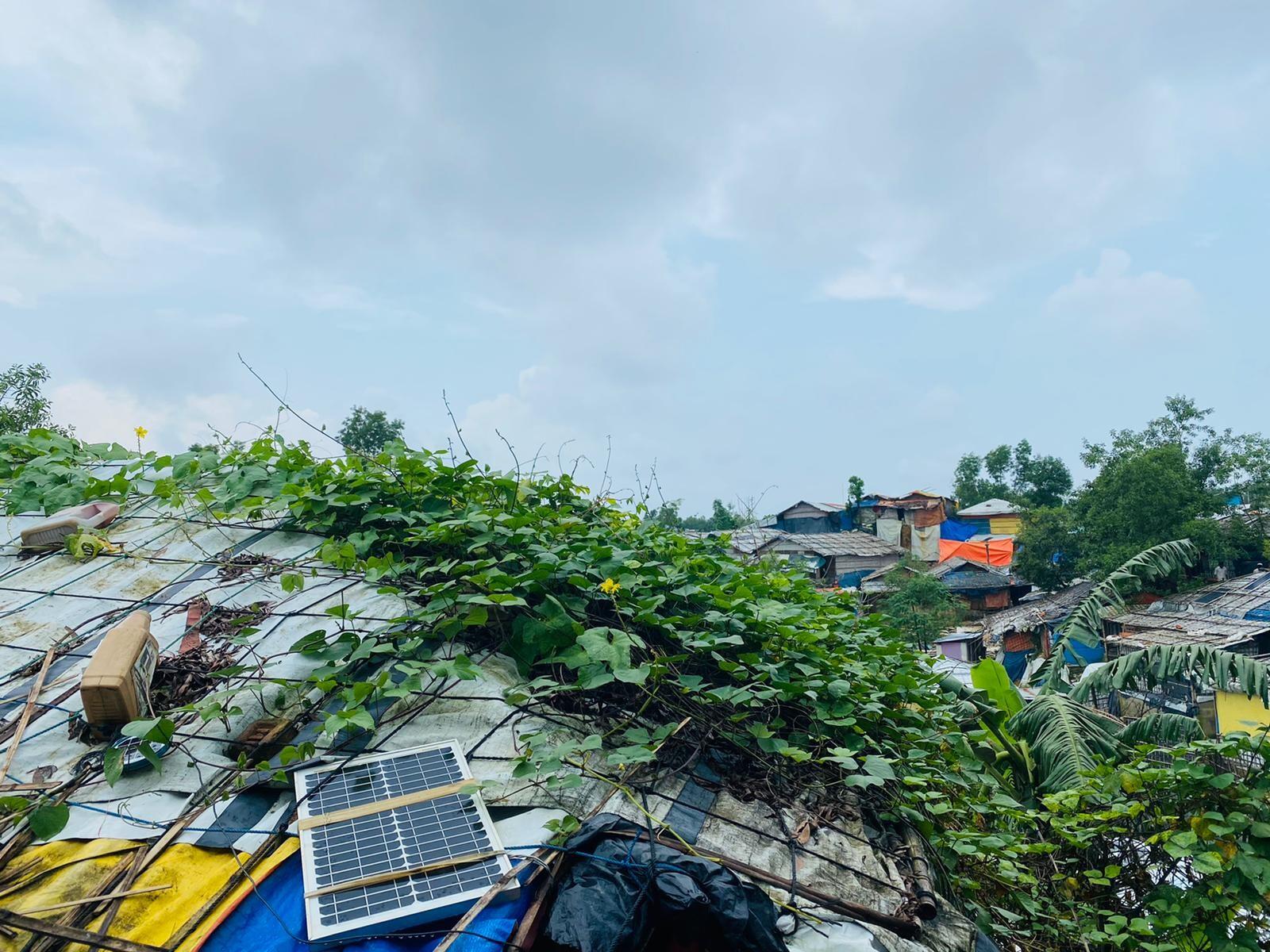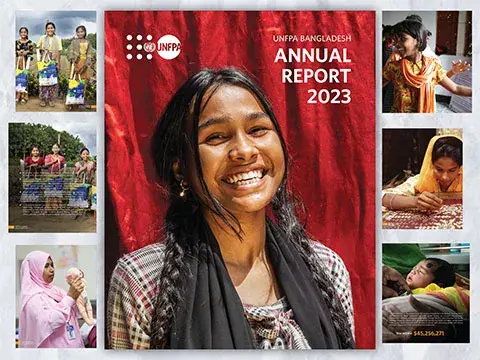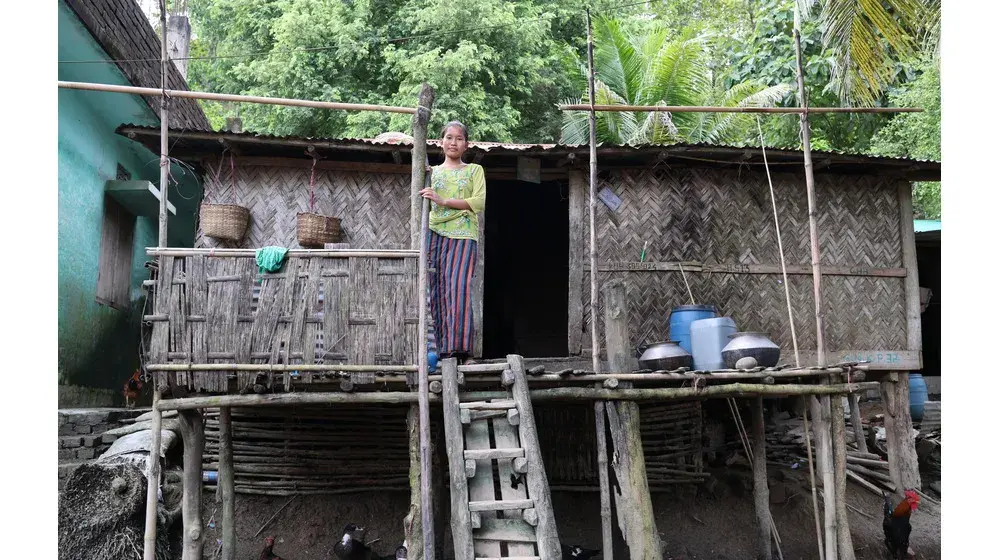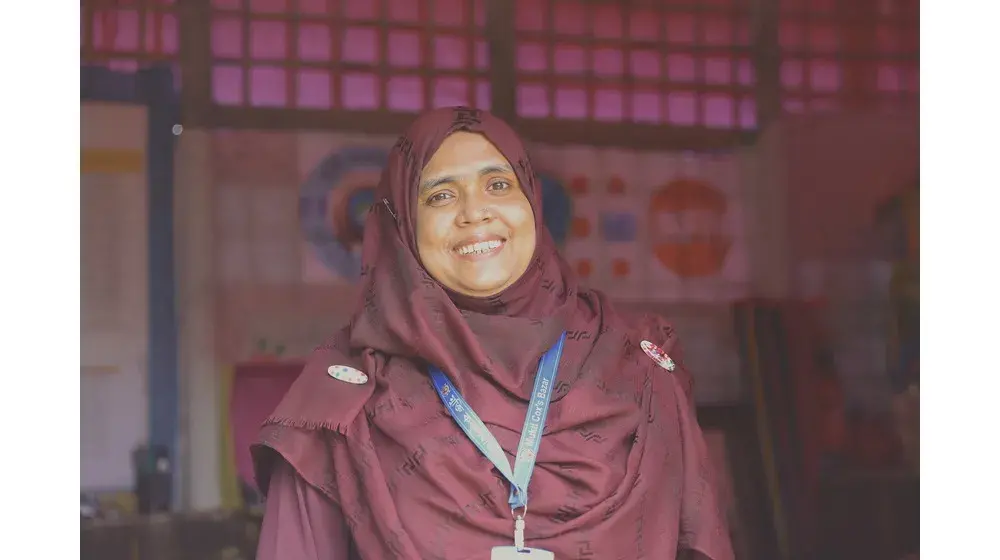In a context of limited space, limited educational opportunities, and a country highly prone to flooding and climate-related disasters, micro-gardening provides an opportunity for adolescent girls and boys living in the Rohingya refugee camps to develop their life skills, learn, and have fun.
Much has been reported about the plight of Rohingya refugees living in Cox’s Bazar, Bangladesh. The Rohingya community needs increased access to quality education, learning opportunities, and continued investment in sexual and reproductive health and rights (SRHR).
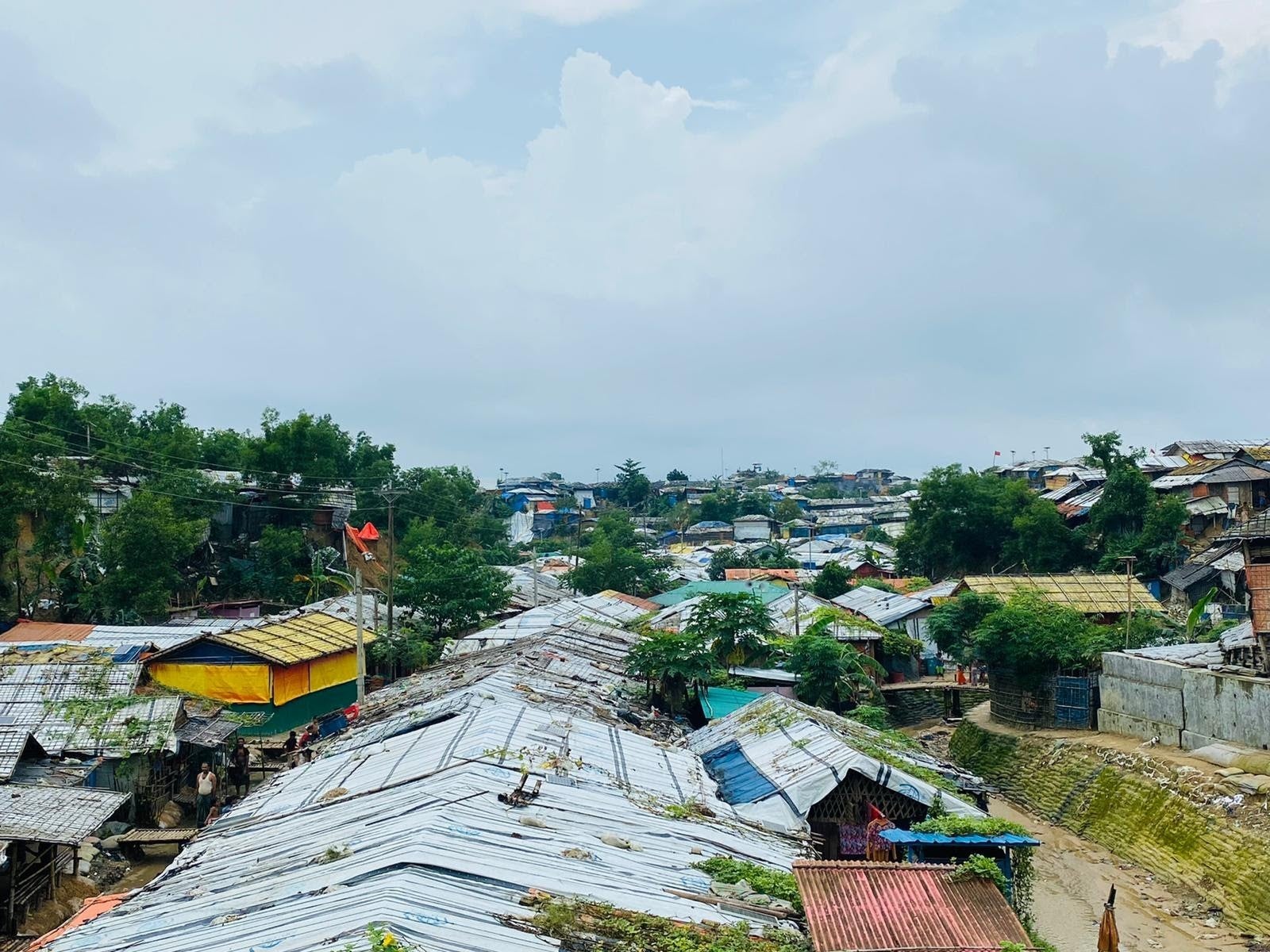
Shelters with micro gardens on their roofs. ©UNFPA Bangladesh/Kelly Thompson
Constituting approximately 22.41 % of the total Rohingya population in Cox's Bazar, young people between the ages of 15 and 24 are most at risk due to their stage of development. Further compounding their vulnerabilities is the reality that only 3% of youth aged between 15-24 are engaged in any type of educational programming.
The deficit of educational programming can also be explained by the challenge of space. Following the onset of the August 2017 influx, the limited space in the camps was used to establish facilities that would provide life-saving services. However, due to the protracted nature of the crisis, the establishment of learning facilities and the provision of learning activities for young people has become a priority. Meanwhile, humanitarian actors have been forced to find transformative ways to intervene in a context of limited space and significant need.
To address these needs, sessions on micro-gardening have been integrated into life skills education programmes that are being provided to adolescent girls and boys in the camps. These programmes are being implemented by the United Nations Population Fund (UNFPA) and Plan International Bangladesh, and they aim to enhance the life skills and resilience of adolescents between the ages of 10-19, through structured sessions on gender, SRHR, and micro-gardening. With the support of the Australian Department of Foreign Affairs and Trade, the programming has also been enhanced with microgardening kits being distributed to those who complete the programmes.
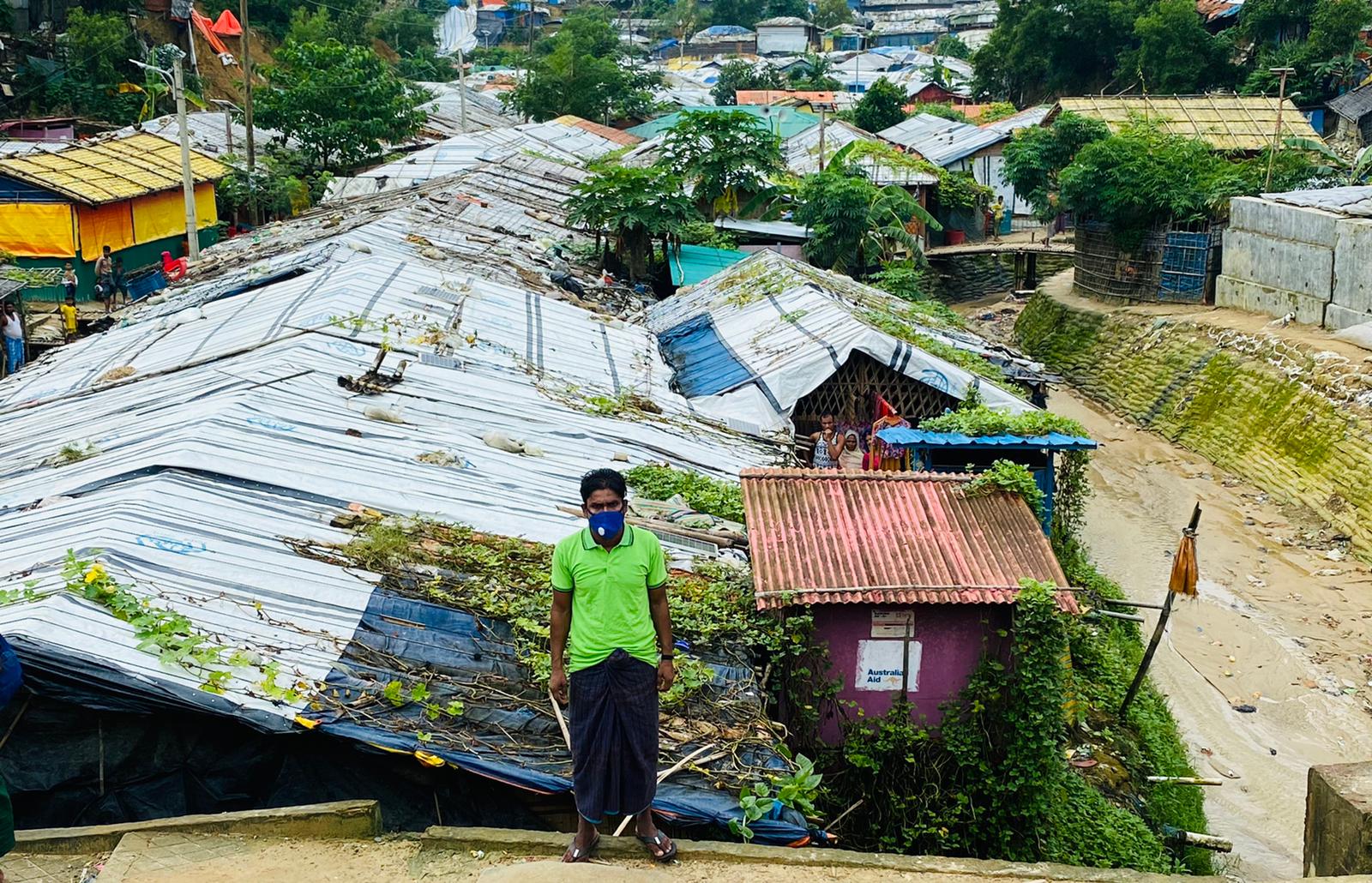
Jahur, a Champions of Change participant, in front of his micro garden ©UNFPA Bangladesh/Kelly Thompson
“The ability to do micro-gardening has made me very happy. It means that I can now provide fresh vegetables for my family to feed ourselves. Where I live there are many adolescents, and we have all been working hard on our gardens. Unfortunately, the flooding destroyed some of the gardens and we are eagerly awaiting for more seeds," shares, Jahur, an 18-year old graduate of the programme.
Micro-gardening was identified as a transformative educational and life enhancing activity in the Rohingya context, due to its potential to yield a wide range of nutritious produce in a context of limited space and water scarcity. Micro-gardening also provides a tangible learning opportunity. During the sessions, participants learn about plants and the appropriate methods of growing them. Then, adolescent girls and boys are given micro-gardening kits containing vegetable seeds, fertilizer and other equipment, which allow them to start their own gardens.
The effectiveness of micro-gardening as a life enhancement activity should not be underestimated. Micro-gardening fosters a sense of accomplishment and builds self-esteem of the youth, as it gives them an opportunity to make a positive impact on the lives of their families. Moreover, for the adolescent boys and girls living in the camps, many of whom have experienced serious loss, micro-gardening allows them to witness their hard work quickly bear fruit.
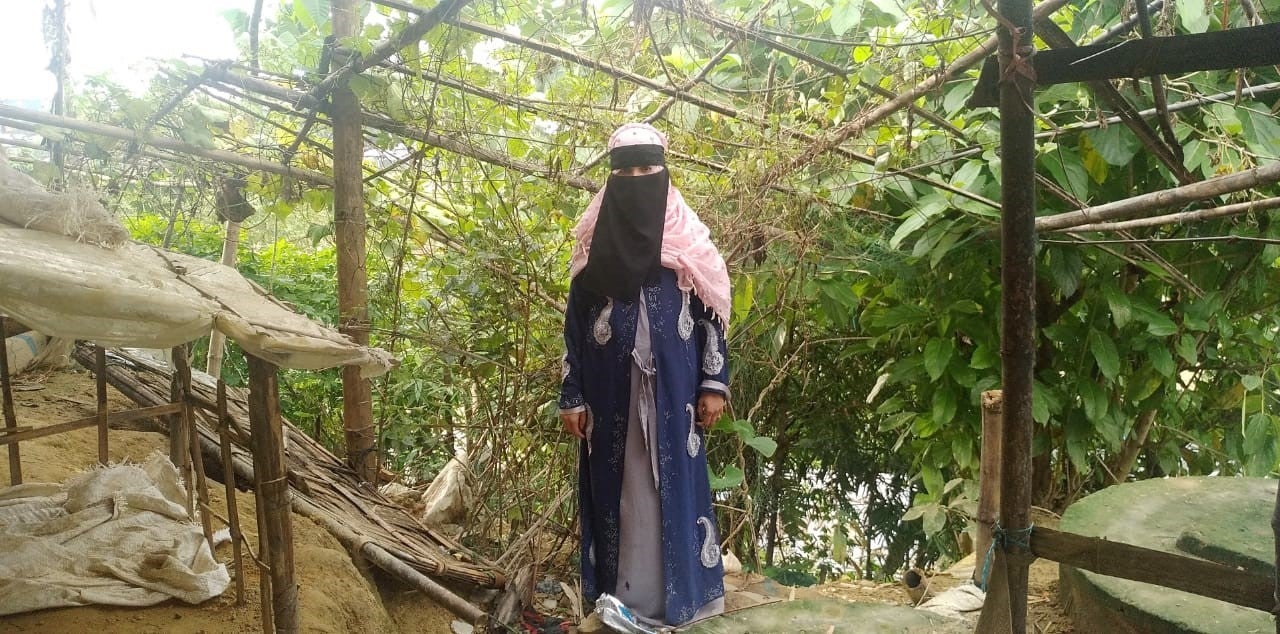
Kodbau is one of the adolescent girls benefiting from the micro gardening kit and sessions in the camps. ©Plan International Bangladesh
“I was very curious about the micro-gardening kit. I used all the seeds and it was also a hobby of mine during my childhood in Myanmar. Now, I finally have a garden of my own here in the camp and I can once again nurture my passion,” tells Kodbau, a 19-year old girl living in the camp.
Skills development has the potential to transform young people and ensure that their potential is fully realized. On this World Humanitarian Day 2021, we encourage all humanitarian actors around the world to be innovative in identifying and implementing educational activities that can change the lives of young people living in humanitarian contexts. Equipped with the right skills and knowledge, we believe that these young people will be able to contribute to safeguarding the environment by rebuilding more sustainable versions of their communities.

